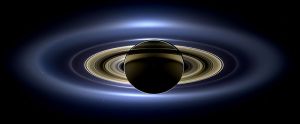Below is a provocative passage from the conclusion of R. G. Collingwood, The Principles of Art (page 325). Oxford first published the book in 1938, and its 1958 paperback edition is still in print. I assume the book continues to be printed without a copyright notice; at any rate, my own paperback copy, from the nineteenth printing, purchased in 1988, has no copyright notice.
I typed up the passage below and put it on my departmental website years ago. I have placed the passage here, because of an article that I chanced upon through the Arts & Letters Daily site. The article itself is on the Poetry Foundation website, is by Ruth Graham, and is called “Word Theft: Why did 2013 become the year of the plagiarists?”
I gather from the article that some contemporary poets have been found to have plagiarized from other contemporary poets; and what is especially annoying about the plagiarism is that the plagiarists are not actually improving what they are appropriating. In this case, they are not following Collingwood’s recommendation, though possibly they are ineptly trying:
To begin by developing a general point already made in the preceding chapter: we must get rid of the conception of artistic ownership. In this sphere, whatever may be true of others, la propriété c’est le vol. We try to secure a livelihood for our artists (and God knows they need it) by copyright laws protecting them against plagiarism; but the reason why our artists are in such a poor way is because of that very individualism which these laws enforce. If an artist may say nothing except what he has invented by his own sole efforts, it stands to reason he will be poor in ideas. If he could take what he wants wherever he could find it, as Euripides and Dante and Michelangelo and Shakespeare and Bach were free, his larder would always be full, and his cookery might be worth tasting.
This is a simple matter, and one in which artists can act for themselves without asking help (which I am afraid they would ask in vain) from lawyers and legislators. Let every artist make a vow, and here among artists I include all such as write or speak on scientific or learned subjects, never to prosecute or lend himself to a prosecution under the law of copyright. Let any artist who appeals to that law be cut by his friends, asked to resign from his clubs, and cold-shouldered by any society in which right-thinking artists have influence. It would not be many years before the law was a dead letter, and the strangle-hold of artistic individualism in this one respect a thing of the past.
This, however, will not be enough unless the freedom so won is used. Let all such artists as understand one another, therefore, plagiarize each other’s work like men. Let each borrow his friends’ best ideas, and try to improve on them. If A thinks himself a better poet than B, let him stop hinting it in the pages of an essay; let him re-write B’s poems and publish his own improved version. If X is dissatisfied with Y’s this-year Academy picture, let him paint one caricaturing it; not a sketch in Punch, but a full-sized picture for next year’s Academy. I will not rely upon the hanging committee’s sense of humour to the extent of guaranteeing that they would exhibit it; but if they did, we should get brighter Academy exhibitions. Or if he cannot improve on his friends’ ideas, at least let him borrow them; it will do him good to try fitting them into works of his own, and it will be an advertisement for the creditor. An absurd suggestion? Well, I am only proposing that modern artists should treat each other as Greek dramatists or Renaissance painters or Elizabethan poets did. If any one thinks that the law of copyright has fostered better art than those barbarous times could produce, I will not try to convert them.
Collingwood’s book suggests the author’s admiration for T. S. Eliot, and the two contemporary thinkers seem to share an opinion about copying. Eliot’s verbalization of the idea is apparently the more memorable one and is quoted by Ms Graham in the article on the Poetry Foundation website:
T. S. Eliot, who relied on other sources for much of “The Waste Land” (plagiarism or allusion?), famously wrote, “Immature poets imitate; mature poets steal.” Less often quoted is the next line, “Bad poets deface what they take.” This is what seems to gall many victims of plagiarists: to see their poems reprinted in weaker versions than the original.







